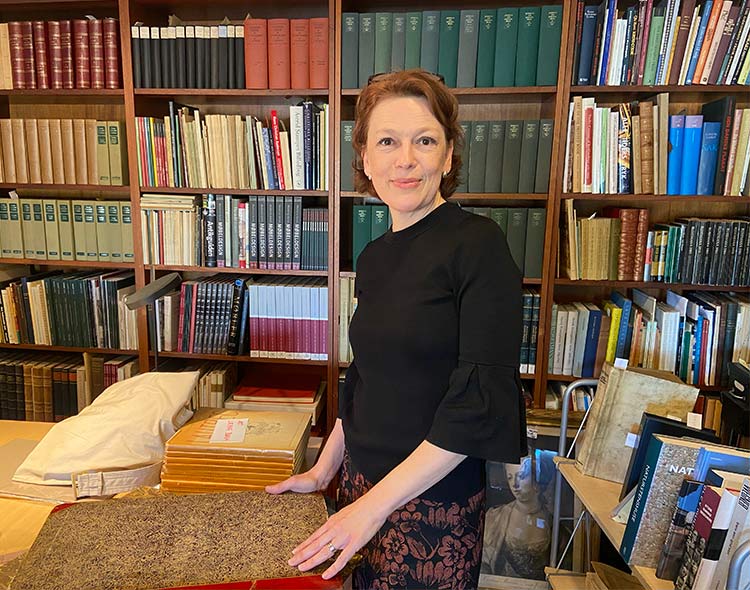
A Visit to the World of Books
Research has shown that people who read literature do better in life. However, some do not stop at reading, but go even further and become book collectors. At Bruun Rasmussen, we have a long tradition of selling books at our auctions. We have spoken with our specialist Lærke Bøgh, who sees working with books as a great privilege. She talks about what collecting books actually entails and how to get started.
Lærke Bøgh has worked at Bruun Rasmussen for many years as a specialist and is today Head of the Department for Books and Manuscripts. She has a master's degree in Nordic literature and Art History from the University of Aarhus and has previously taught both Danish and art history. Every day she evaluates books, letters and manuscripts – from the earliest printed books in the late 15th century to modern art books.
“The best thing about my work is the joy of sitting with a rare antique work in my hands, studying hand-coloured illustrations of plant life or diving into a special book collection. A book collection can say a lot about a person. It may have been established across several decades and can therefore sometimes tell the story of a whole life,”
says Lærke Bøgh.
What Does It Mean to be a Book Collector?
As a book collector, you typically specialize in a specific area, such as a specific author, bookbinder or a specific type of book print. One can also deal with certain fields of interest ranging from books on birds to ancient bibles. The bibliophiles – ie book lovers – certainly have a knowledge about or relationship to the works they collect. It is not uncommon for them to have several copies of the same book”.
“The new collectors can be driven by investment, where they sell the books again after a few years. For the more "classic" bibliophiles, on the other hand, it is a lifelong passion, where they have typically begun collecting at a young age and may have bought their first book using hard-earned pocket money. That generation has also experienced waiting – perhaps for several years – for the right book to appear on the shelf at the local antique bookstore. That was before the internet! Today, one can create a search agent online and be told when specific items show up. New collectors are guided by other things when it comes to books, and the pace is different.”
How Do You Become a Book Collector?
“As a book collector, you should first and foremost collect with your heart. Then you can always develop and build on the collection – the possibilities are truly endless. Books provide a great opportunity for a personal immersion in a subject. So, if you are passionate and want to immerse yourself, this is a good place to start,” says Lærke.
|
“You can also orient yourself and seek information from someone who knows something about the subject. You can find knowledge at auction houses and antique bookstores, and there are also several forums for book collectors online and of course a lot of well-researched literature on the subject. Auctions are a good place to start, because you can often make a great purchase here – especially when it comes to Danish literature.” According to Lærke, collecting books is changing as an activity: “Unfortunately, many antique book shops have had to close shop in recent years because the market is changing. But the physical book is not dead – on the contrary, the book is here to stay, it is simply changing into new formats. There is actually a great love for and joy of the book among young people. One change is that several smaller, new publishers are emerging, who focus a lot on the book's physical elements: the cover, the paper, the way it can be folded and so on. This is proof of a renewed and different interest in the book, which is not yet reflected in the auction market, but these publications can potentially become collector's items later on,” Lærke concludes. |

|
For further information on book auctions and valuations, please contact: